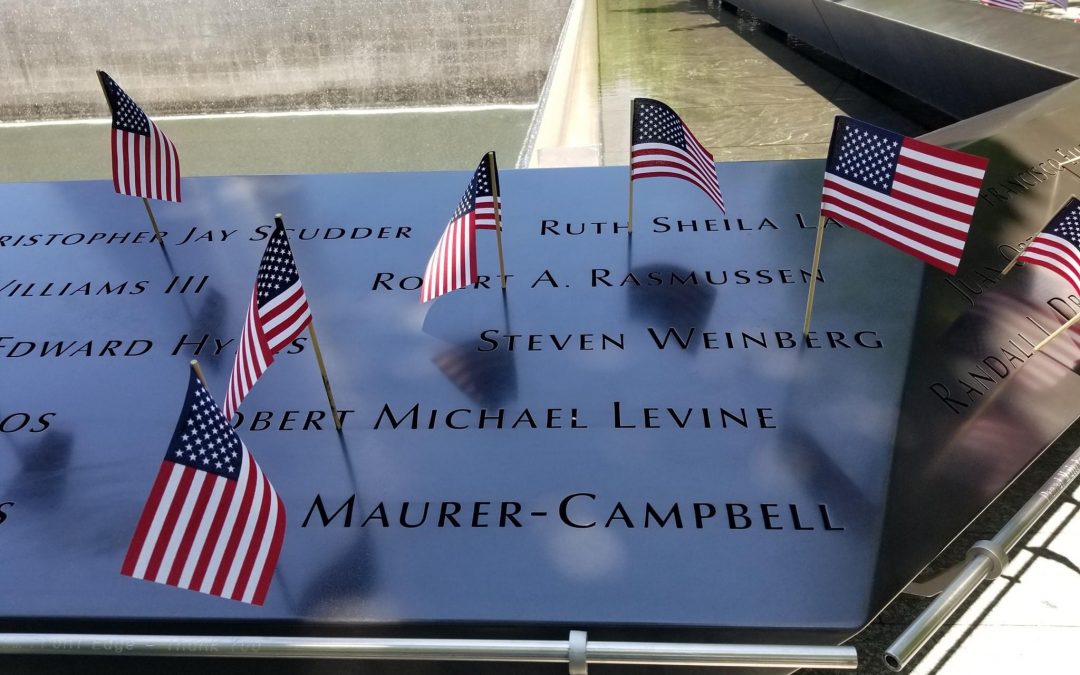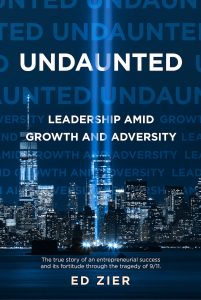In 1905 the Spanish philosopher George Santayana stated in The Life of Reason, “Those who cannot remember the past, are condemned to repeat it.”[i]
“Never forget!” is a rallying cry that is exclaimed every so often in the course of human history that generally corresponds with brutal wartime attacks, sudden acts of mass violence, or prolonged horrors in the name of hate. Gettysburg, Pearl Harbor and, certainly, the Holocaust are just a few examples in which the phrase is often applied. The importance of the phrase is not necessarily for the purpose of exacting revenge, but rather for preparing future generations to see warning signs and avoid repeating our mistakes – whether they be by Americans, foreign nationals, or humanity as a whole.
Avoidance is a Primary Goal
On September 11, 2001 another tragedy, known simply as “9/11,” took its place among the infamous human-led catastrophes that were both horrific and, arguably, avoidable. Going forward, avoidance should be a primary goal. In recent years that has entailed shoring up security and tightening immigration and banking laws. Longer term, it’s going to require far more peaceful co-existences among the world’s peoples. Here is an excerpt from my book, UNDAUNTED:
“The individuals that attacked us on 9/11 wanted to make their own statement about their perception of America, but were not interested in anything peaceful. Their statement was lodged in a mission of hate. It is essential that we not forget the day nor the people we lost, for 9/11 should remind us of how much we actually have in common here in this country, and across much of the free world. Nor can we, as a species, allow ourselves to digress to earlier histories of human warfare based on hate and mistrust, as such acts are an unacceptable stain on our evolutionary progress.”
Casualties were Significant
As we all know, 9/11 saw a successful plot hatched against targets inside the United States. It was the first large scale attack carried out by foreign interests since the infamous attack on Pearl Harbor in 1941. Unlike Pearl Harbor, the four incidents that made up the events of 9/11 took aim mostly at civilians. Incredibly, approximately 500 more people were killed by four airplanes on 9/11 than by all the Japanese attack planes on December 7, 1941. Also, unlike Pearl Harbor where the attack was carried out against a naval base where casualties were Americans, the victims of 9/11 very much embodied the name of a primary target—the World Trade Center. The attacks of 9/11 took the lives of people from ninety nations.[ii]
Nearly 50,000 people worked within the Twin Towers daily. While the Washington targets on 9/11 were an attempt to be symbolic, the World Trade Center was clearly chosen for its size, its association with American capitalism, and the potential for large scale human casualties. Prior to the infamous day, the thought of four commercial airliners being simultaneously hijacked and flown into revered and human-laden buildings was unconscionable. They succeeded on an unprecedented scale, and dealt the United States a blow of vulnerability. The death count from the four incidents reached 2,977 innocent lives. Companies headquartered at the WTC like Cantor Fitzgerald and Marsh McLennan lost hundreds of good, hard-working employees – who were (each in their own right) husbands, wives, partners, fathers, mothers, sons and daughters.
Baseline’s Fallen Colleagues
Among the victims in the South Tower, which was the second building to be hit, my company (Baseline) lost four wonderful people that day – Jill Campbell, Ruth Lapin, Bob Levine and Steve Weinberg. They were more than co-workers. They were individuals with families that loved them. They were people who had accomplished much, and they were looking forward to additional adventures ahead. They were also our good friends. They were simply in the wrong place at the wrong time.
The Baseline family will never forget them. As a country we can never forget the day and its consequences, and can never allow that to happen again. And, as a species we have to do better—much better.
[The photo above is the South Tower’s Reflecting Pool at the 9/11 Memorial in lower Manhattan. It depicts the four names of my fallen colleagues. Photo credit: Brian Branco]
[i] George Santayana, The Life of Reason, 1905, (The Project Gutenberg E-book, 2005), https://www.gutenberg.org/files/15000/15000-h/15000-h.htm.
[ii] Garrett Graff, The Only Plane in the Sky (New York: Avid Reader Press, 2019), xix
UNDAUNTED was published by Koehler Books on September 11, 2021—the 20th Anniversary of 9/11.



Looking forward to UNDAUNTED!